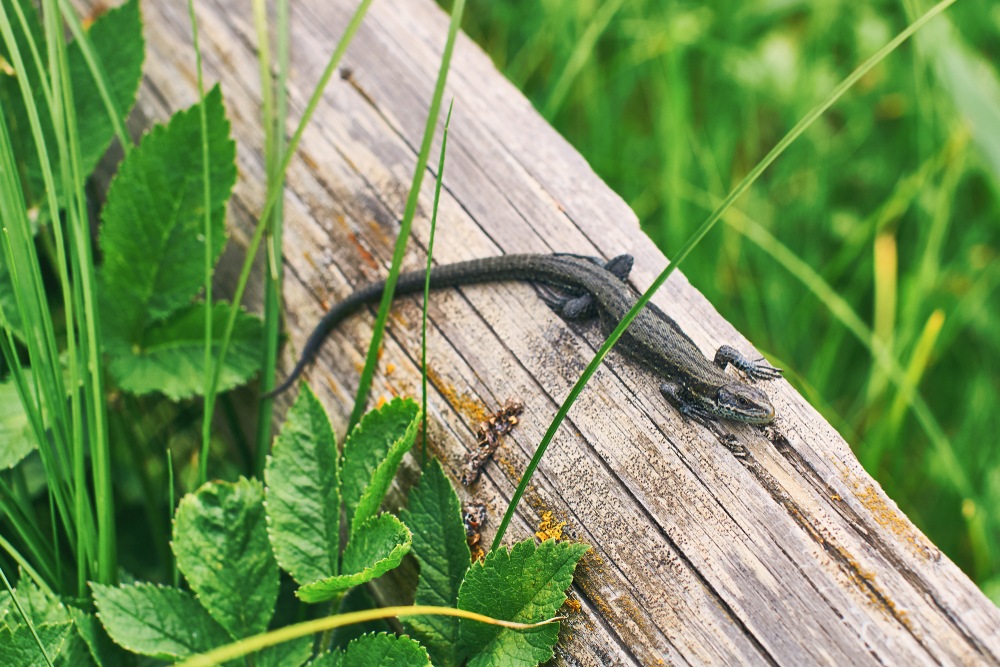Noble False Widow Spider found feeding on protected native lizard

July 27th, 2018
A paper published this week by Irish researchers has revealed that an invasive alien spider poses a significant threat to Ireland’s only native terrestrial reptile.
The first record of a Nobel False Widow spider feeding on the viviparous lizard in Ireland has been published in the Proceedings of the Royal Irish Academy journal by a team of Irish researchers from the Ryan Institute in NUI Galway and the Herpetological Society of Ireland.
In May 2017, this rare predation event was recorded in a private garden in Killiney, Co Dublin where an 8.5cm juvenile Viviparous lizard was found entangled in a web with a 3.3cm Noble False Widow spider feeding on it.
The Nobel False Widow spider, native to Madeira and the Canary Islands, was accidentally introduced to Western Europe in the 1800s.
This invasive species was first recorded in Ireland in Bray, Co Wexford in 1998 and has since colonized much of Ireland with confirmed sightings in 17 counties. The spider is mainly found in urban areas such as Dublin, Cork and Wexford.
John Dunbar, a PhD researcher at the Venom Systems Laboratory in NUI Galway and lead author of the study, said that this spider has “a real advantage” over our native spiders in entangling large prey.
This is due to its venom possessing a powerful vertebrate specific neurotoxin and its ability to produce a very strong silk, Mr Dunbar explained.

Ireland’s only native terrestrial reptile, the Viviparous lizard. Photo: NUI Galway
Collie Ennis and Rob Gandola from the Herpetological Society of Ireland said that as the spiders follow the “increasing urban spread into our countryside” they are more likely to come into contact with native wildlife.
This new finding further complicates the conservation of the Viviparous lizard, a protected species in Ireland. The researchers encouraged people who have lizards near or on their properties to report any sightings of Noble False Widows predating on lizards.
Ecological Surprises
Since arriving in Ireland the Nobel False Widow spider has had a detrimental effect on native ecosystems. This invasive alien species are outcompeting native spiders due to their fast breeding life strategies and longevity, living for up to seven years.
This new record of a predation event on a native vertebrate species suggests that the spread of Nobel False Widow spiders across Ireland may generate even more unpredicted ecological impacts.
Dr Michel Dugon from the NUI Galway Venom Systems Laboratory warned that this rare event raises questions of the “delayed impact” of overlooked invasive species on iconic native organisms and the “true impact of the Noble False Widow on our native ecosystems”.
The study published today reinforces the status of the Nobel False Widow spider as an invasive alien species in Ireland, placing it in the same category as Japanese knotweed, zebra mussels and grey squirrels.
Invasive species, including Japanese knotweed and grey squirrels, also cause significant economic damage. The annual cost of invasive species in Ireland was estimated at over 200 million euro in 2013.
[x_author title=”About the Author”]







